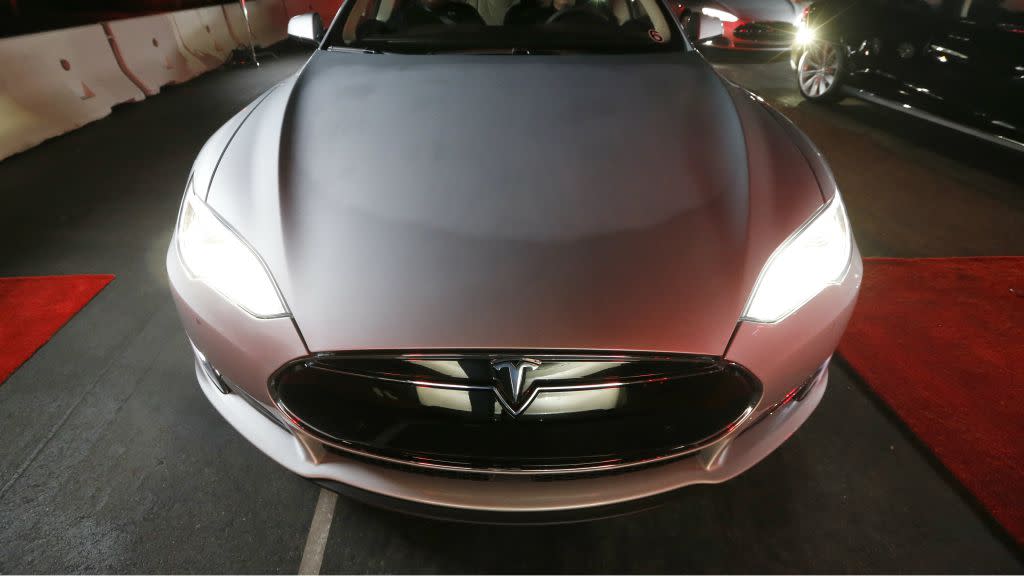Hong Kong’s love affair with Tesla vehicles looks set to grind to a halt

Over the past three years, Hong Kong has turned into an unexpected hub for the world’s best-known electric car. Right along with neon signs and skyscrapers, Tesla vehicles define the urban landscape and fill the streets of the central business district.
But this affair with Tesla will likely come to an end, now that the government is shutting down the scheme that drove the car’s popularity in the first place. During a speech announcing the annual budget for 2017, financial secretary Paul Chan announced that the government will lift a long-standing waiver for electric cars on new-vehicle registration tax.
In its place: a maximum deduction of HK$97,500 (about US$12,500) on the usual tax.
Hong Kong places a heavy tax on new private car purchases in order to curb pollution and reduce traffic. This tax often amounts to more than the full sticker price of the car. Yet for almost 20 years, this tax was waived entirely on electric vehicles, ostensibly to also help reduce pollution.
For most of that time, this waiver effectively meant no lost tax revenue for the government, because no one was buying electric cars—that is, until Tesla became cool. The city’s taste for luxury coupled with the tax incentive meant consumers could buy a car as sexy as a Mercedes, but at half the cost. Electric vehicle registrations in Hong Kong have skyrocketed over the past several years as a result, increasing nearly 100-fold between 2013 and 2016.

Under the new scheme, a Tesla Model S 60 with a sticker price of price of HK$570,000 will cost a total of HK$925,500 to purchase—giving it little or no price advantage over a Mercedes. There’s now less reason for Hong Kongers to buy a Tesla, unless of course they have a strong affinity for the brand, hope to cut spending on petrol, or care about the curbing pollution.
Vehicle | Sticker Price (HK$) | Tax (HK$) | After-tax Price (HK$) |
|---|---|---|---|
Mercedes A 180 FL | $314,000 | $186,500 | $500,500 |
Mercedes E200 | $599,000 | $486,350 | $1,085,350 |
Tesla Model S 60 (with tax waiver) | $570,000 | $0 | $570,000 |
Tesla Model S 60 (with removed tax waver) | $570,000 | $355,500 | $925,500 |
A Tesla spokesperson wrote to Quartz that the company is “disappointed” with the government’s new measure:
Over the past few years, the impressive growth in all kinds of electric vehicles on Hong Kong’s roads has helped create a cleaner, more sustainable city without increasing congestion as almost all our new owners are replacing a particularly high-polluting fossil fuel vehicle. [The action] threatens to move Hong Kong backwards. We will continue to support our owner community and will work with all our current order holders to ensure the delivery of their vehicles with full FRT exemption.
Hong Kong suffers from severe pollution. Last year, approximately 3,000 people died from and 150,000 were hospitalized for pollution-related illness.
Mark Webb-Johnson of Charged.hk, a local EV advocacy group, lamented the government’s turnaround. “Electric vehicles today make up than less than 1% of the private car fleet, and the number for commercial vehicles are significantly lower than that,” he told Quartz. “In this infancy of electric vehicles in Hong Kong, it is far too soon to withdraw the support.”
The chart in this piece has been updated.

Sign up for the Quartz Daily Brief, our free daily newsletter with the world’s most important and interesting news.
More stories from Quartz:

